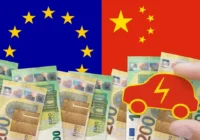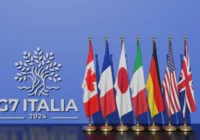Will Hong Kong’s recent election lead to a cohesive and sustainable approach in dealings with China?
In the late 1970s, Deng Xiaoping, the Chinese revolutionary who was responsible for propelling the transformation of China to the power it is today, had a grand dream. His ambition of creating a unified China—where the regions of Hong Kong, Macau and Taiwan would be “reunited peacefully” with the mainland—was to be fulfilled under his policy of “one country, two systems.”
Formulated fully by 1983, the essential principles of this policy underlined how each region could retain its economic, political and social systems—built on capitalism—once communist China resumed the exercise of its sovereignty over the regions.
In reality, Deng’s policy has encountered many setbacks over the last decade, and none have made peaceful unification more elusive than Hong Kong’s Legislative Council (LegCo) elections on September 4. In an election with the highest ever voter turnout since Hong Kong was handed back to China by the British in 1997, non-establishment/pro-democracy candidates won 30 out of 70 contested seats—with five of those 30 seats won by young, first-time candidates from the post-Occupy movement of 2014.
Many news outlets around the world have been quick to remark that a new generation of voters has finally made its voice for more autonomy, and eventually independence, heard. But is there really much cause for celebration? What are China’s concerns? And what’s next for Hong Kong?
David and Goliath’s Stand-off
Hong Kong’s sociopolitical battles with Beijing have long been in the making, with resistance against signs of “mainlandization” steadily building up since the 2000s. Language, for example, has become a main point of contention. Under the Basic Law of Hong Kong, Mandarin, or Putonghua, was made an official language along with Cantonese and English. The increased emphasis on Mandarin in institutions and schools as a medium of instruction has led to locals fearing that their cultural identity is being pushed to the fringe.
Politically, Beijing has maintained a tight control on the city’s institutions, and the latest round of elections has only emphasized the strict boundaries that anti-establishment forces must work within. The LegCo is responsible for passing laws and approving the government budget, but registered voters directly elect only 40 out of the 70 seats—35 through geographical constituencies and five through the District Council, with the remaining 30 elected by 28 traditional functional constituencies—which gives special representation to certain pro-establishment social and economic groups.
Beyond the LegCo, Beijing’s resolve to implement a controlled framework for the first election of the chief executive through universal suffrage in 2017 has also been a spark for political activism since 2014. In August 2014, the decision made by the Standing Committee of the National People’s Congress in China to “make provisions” in the selection of the chief executive, “so as to facilitate the building of consensus within the Hong Kong community,” was a sign of Beijing’s outright rejection of democracy. While the chief executive would be elected by popular vote, no open nominations would be accepted, and “two to three candidates” would be eligible to run for office—but only after each candidate has been approved by a majority of a 1,200-member election committee that is likely to be pro-establishment.
While this decision triggered the 79-day Umbrella Movement and brought Hong Kong’s political tensions with China to the world’s attention, it did not lead to any immediate changes.
“The Umbrella Movement successfully aroused the political enthusiasm of the usually politically apathetic citizen, says Elizabeth Kit-Wai, a local commentator and journalist. “At the same time, however, the people [were] very disappointed that the movement failed to bring genuine political reforms to the city.” She adds that the events of 2014 resulted in “a small group of people” becoming drawn to the idea of independence, while many others preferred to remain on a more moderate path of demanding China to accommodate more mechanisms for democratization.
But accommodation was not a message that Beijing has conveyed, and recent events since the end of 2015 have only fueled anti-Beijing sentiments. The disappearance of five Hong Kong booksellers—with one being abducted by mainland agents within Hong Kong—and the short-lived riots in the district of Mong Kok in February 2016 struck deep blows to the policy of “one country, two systems,” making the elections in September an opportune moment for localist parties to come together.
Serious Fragmentation
Unity, however, was not the name of the game for the pro-democracy camp, and to several people that Fair Observer spoke to, it is something that might not materialize for some time.
To Kit-Wai, the pro-democracy camp looks “seriously fragmented,” and this was reflected in the long list of candidates who contested in each district, especially in the New Territories East and West.
It is also likely that a consensus on just how much autonomy should be fought for will not be reached amongst pro-democracy parties in the near future. While the LegCo results showed that pro-democracy voters largely preferred candidates from parties with moderate political agendas, the victory of pro-independence candidates—such as 23-year-old Nathan Law, who campaigned with more extreme agendas—has made localist messages of pro-independence more mainstream, and the polarization of liberal stances might heighten in the lead up to the chief executive elections in March 2017.
 Fair Observer provides you deep and diverse insights for free. Remember that we still have to pay for servers, website maintenance and much more. So, donate now to keep us free, fair and independent.
Fair Observer provides you deep and diverse insights for free. Remember that we still have to pay for servers, website maintenance and much more. So, donate now to keep us free, fair and independent.
“I think people who were silently supporting the localist movement would be galvanized,” says Dylan Loh, a graduate research fellow at the University of Cambridge and a faculty member at Singapore’s Nanyang Technological University. For next year’s chief executive elections, all eyes will be on whom the nominating committee puts forth as candidates for elections. Loh adds that the election result “quells any chance of having a more reformist-minded or independent candidate being put up for the CE [chief executive] elections.”
The current chief executive, C.Y. Leung, is highly unpopular, and whether or not he will successfully serve the second term is a critical point of the development of local politics.
Same Old Band
While China’s efforts in censoring news about the LegCo elections were run of the mill—the University of Hong Kong’s China Media Project ran a database search on September 5 and found only one Chinese-language article about it in mainland papers—it is unlikely to alter its current paternalistic approach toward post-2014 Hong Kong. Unsurprisingly, in the lead-up to voting day on September 4, several pro-independence candidates were banned from running, while others faced threats and were even assaulted for being too critical of Beijing.
The Politburo also issued a statement on September 5 via the Xinhua news agency, stating that it “would not tolerate any talk of independence ‘inside or outside’ the legislature.”
The elections may, therefore, have allowed several anti-Beijing activists to get their foot through the door, but the general composition of LegCo has essentially not changed much, with the pro-Beijing camp retaining a majority. As such, China is likely to adopt a “wait-and-see” approach.
“The issuance of warnings coupled with the increased influence in academia, media, grassroots and elite levels are sure to continue,” says Loh, and such boundaries and limitations are likely to frustrate localists and create a vicious action-reaction cycle of protests.
Hong Kong does not have to look far to see how China’s tolerance of resistance has dipped and become more violent in tone since 2014. China cut off all diplomatic ties with Taiwan in June 2016 after Taiwanese President Tsai Ing-wen failed to acknowledge the concept of “one China.” Within the mainland, the government’s recent violent crackdown on Wukan, a village in southern China that used to pride itself for running its own government, has heightened the climate of fear and villagers are now afraid of what will happen next.
If China hoped that the crackdown on Wukan would create fear in Hong Kong, it has created an opposite effect. Localist leaders have shown a stronger commitment of standing firm to their cause, with close to 100 Hong Kongers holding a candlelight vigil in solidarity with the villagers in Wukan on September 19.
Power to the People?
With just months to go till the chief executive elections, there are clearly mixed feelings amongst the electorate on the future of Hong Kong’s politics.
“The new LegCo has given me hope—in that positive changes might actually happen, though I’m not sure where it will lead and how far localism will succeed,” says Stephanie Chiang, 24, a recent graduate. “I voted, half-thinking that my vote wouldn’t make a difference but, to my surprise, it did.”
Views held by young voters like Chiang could very well propel the pro-democracy camp to get their act together and form a more cohesive front over the next few months.
A lot hinges on how the new localist lawmakers will behave. Many anti-establishment legislators within the LegCo are infamous for filibustering, and the political scene stands to become more chaotic if anti-establishment legislators like Edward Leung and Baggio Leung (both Leungs are not related) take on more militant and extreme pro-independence stances during council meetings.
Militancy is an approach that could be adopted by localists over the next few years, with a recent commentary by a Hong Kong academic suggesting that localists could create “a scenario in which China is so sick of Hong Kong that it thinks the best thing to do is to expel Hong Kong” from the mainland.
This, however, is highly unlikely to happen. Hong Kong remains a strategically important entity to China. The superpower’s rigid claims on Hong Kong mean expulsion would only be a wound to its dignity and reputation. It is also worthwhile to note that it would not be possible for Hong Kong to rely on other nations after expulsion. Unlike Taiwan’s strong ties with the United States, Hong Kong as an entity has never been outwardly supported diplomatically by Washington, and Beijing is likely to make sure it stays that way.
With China and Hong Kong entering uncharted political territory, it remains to be seen how Deng Xiaoping’s grand ambition of having a united China can be fulfilled, given that both sides are likely to fight fire with fire to assert their own positions of power. It is, however, worth noting that compared to the Umbrella Movement, the LegCo election results are a more solid start to Hong Kong’s journey of figuring out a sustainable, cohesive approach toward Beijing’s goal of creating “one China.”
The views expressed in this article are the author’s own and do not necessarily reflect Fair Observer’s editorial policy.
Photo Credit: Nikada
Support Fair Observer
We rely on your support for our independence, diversity and quality.
For more than 10 years, Fair Observer has been free, fair and independent. No billionaire owns us, no advertisers control us. We are a reader-supported nonprofit. Unlike many other publications, we keep our content free for readers regardless of where they live or whether they can afford to pay. We have no paywalls and no ads.
In the post-truth era of fake news, echo chambers and filter bubbles, we publish a plurality of perspectives from around the world. Anyone can publish with us, but everyone goes through a rigorous editorial process. So, you get fact-checked, well-reasoned content instead of noise.
We publish 2,500+ voices from 90+ countries. We also conduct education and training programs
on subjects ranging from digital media and journalism to writing and critical thinking. This
doesn’t come cheap. Servers, editors, trainers and web developers cost
money.
Please consider supporting us on a regular basis as a recurring donor or a
sustaining member.
Will you support FO’s journalism?
We rely on your support for our independence, diversity and quality.






